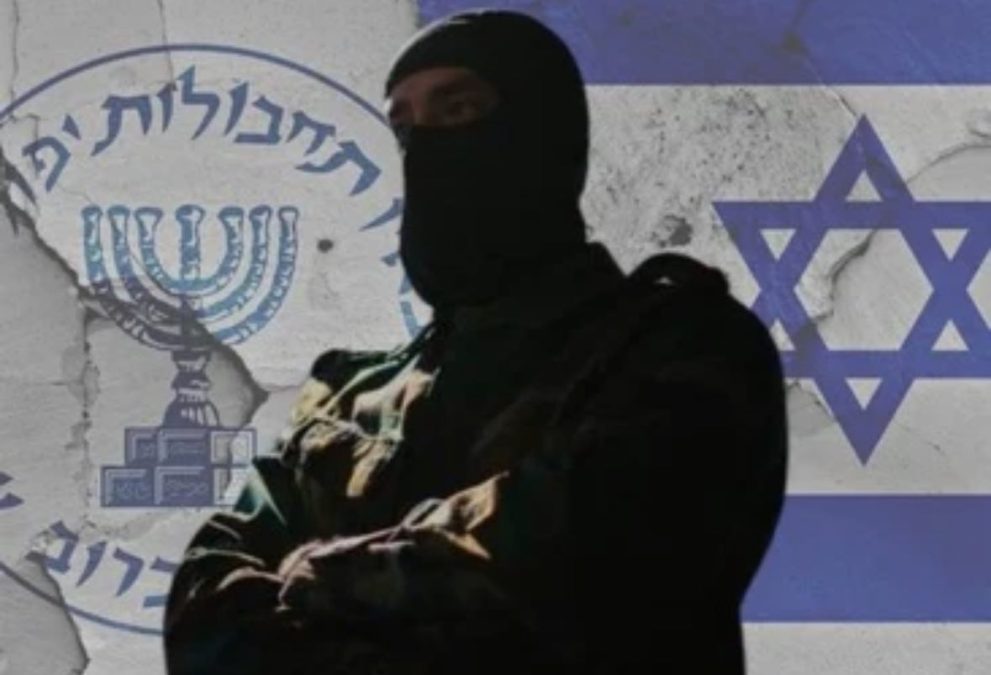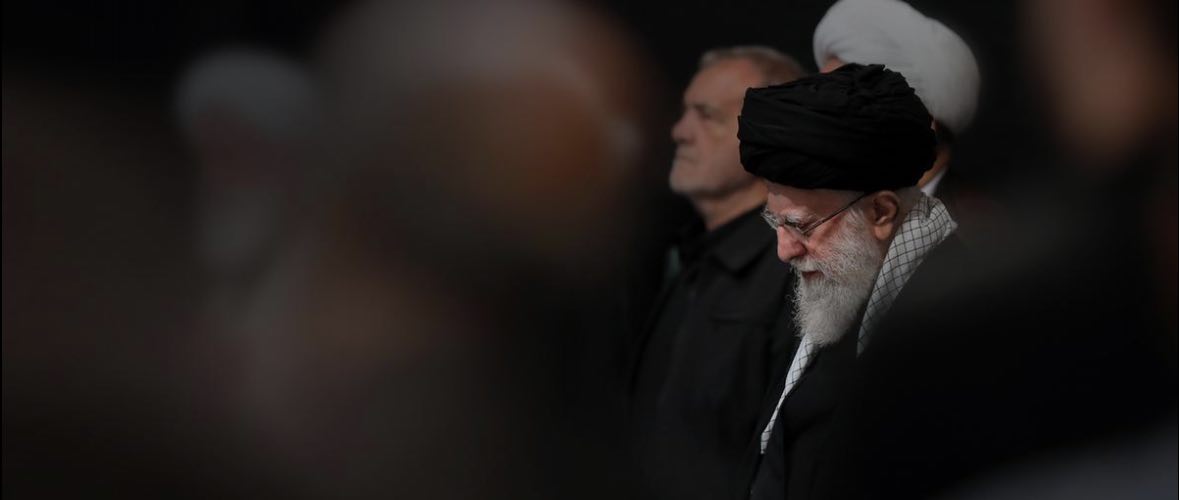Israel’s Unprecedented Threat: Leadership Elimination on the Army’s Agenda
Israel’s Unprecedented Threat: Leadership Elimination on the Army’s Agenda
According to Iran Gate News Agency, the overt and covert tensions between the Islamic Republic of Iran and Israel have entered a new and unprecedented phase, from the direct threat to eliminate the leader of the Islamic Republic by Israel’s former defense minister to the disclosure of details of recent military operations inside Iran, along with the expansion of educational and intelligence programs in Israeli schools to prepare the next generation for confrontation with Tehran.
These developments occur while the dimensions of Israel’s regional conflicts in Gaza and Yemen have also expanded, and the psychological, military, and intelligence war between the two sides has become a key tool in shaping the future security order of the Middle East.
Special Report: Tehran and Tel Aviv Tensions in the Shadow of New Threats from Leadership Elimination to Persian Language Education in Jerusalem
The unprecedented threats from former Israeli military officials against Iran, the disclosure of recent military operation details, and Tel Aviv’s strategic focus on Iran at various political, military, and educational levels all indicate the continuation of a complex and multilayered campaign against the Islamic Republic.
Yoav Galant, Israel’s former defense minister, stated in an interview with Channel 12 of this country that any potential future attack on Iran must be designed in such a way that it leads to the elimination of Ali Khamenei, the leader of the Islamic Republic.
These statements are made while Israeli media, including Ynet, have recently published new details of Israel’s 12-day war operational plans with Iran, without clarifying the purpose of these revelations and whether the tactics used in that war will be repeatable in the future or considered obsolete.
Meanwhile, the Israeli army has increased its preparations to expand military operations in Gaza and simultaneously targeted and killed two-thirds of the ministers of the Houthi-affiliated government in Yemen, including its prime minister, in an airstrike on Sana’a.
Galant: We Must Eliminate Khamenei

In his remarks, Galant emphasized that Iran has once again focused on developing its ballistic missile program and described these weapons as the only relatively effective military tool of the Islamic Republic.
He claimed that previous Israeli and American attacks have set back Iran’s nuclear program by several years and that Israel has been able to completely disable Iran’s air defense systems.
He stated that his answer to the question of whether another round of war with Iran is on the way is a resounding yes and that Israel must prepare for it as soon as possible.
He warned that the next round of battle with Iran will be completely different and this time must include operations to eliminate the leader of the Islamic Republic personally.
Galant also revealed that during his tenure, the initial plan to attack Iran was mostly based on Mossad’s covert operations, but he found this plan overly complex and lacking the necessary effectiveness.
For this reason, the design of a new operation was entrusted to the military intelligence organization of the army, Aman.
He stated that a more effective strategy was the extensive use of the Israeli air force to create a safe corridor in the skies over Iran so that fighters could enter from the west of the country and reach Tehran and other key points.
Galant added that any attack on Iran must be accompanied by full readiness to confront Hezbollah in Lebanon.
He downplayed the roles of Benny Gantz and Naftali Bennett in the plans against Iran, saying that while they sent military equipment to Ukraine, they did not even issue an order to produce one more artillery shell in Israel.
Hajizadeh Was on the Priority Elimination List
In a separate report, the Ynet site affiliated with the Yedioth Ahronoth newspaper published details of an Israeli air force operation on the morning of June 13.
According to this report, Amir Ali Hajizadeh, the then commander of the IRGC Aerospace Force, was at the top of Israel’s elimination targets list, but at the last moment, the path of the dispatched fighters was changed towards his house, and instead, the aerospace command headquarters and related hideout were targeted.
According to Ynet, Hajizadeh was initially informed through Hezbollah that an imminent attack was on the way, but after a meeting at his headquarters, assuming the warning was false, he decided to leave the place and return home.
At that moment, 140 Israeli fighters in the skies over Iran turned on their radar systems on the orders of the operations command to appear on Iran’s radar screen, and Hajizadeh remained in place. Minutes later, he and several other commanders were killed in the bombing.
Bennett: Complete Disarmament or Definite Defeat
Naftali Bennett, the former prime minister of Israel, also welcomed the activation of the snapback mechanism by Britain, France, and Germany, warning that the Islamic Republic might resort to deception to buy time in the remaining period until the return of sanctions.
Bennett emphasized that the only acceptable way is the complete nuclear and missile disarmament of Iran, and any agreement that falls short of these goals would mean surrender and pave the way for future crises.
According to polls, Bennett remains one of Netanyahu’s most serious rivals in the upcoming elections.
Snapback Mechanism: Strong but Insufficient
Danny Citrinowicz, a former official of Israel’s military intelligence, wrote in an article in Israel Hayom that although the return of sanctions will inflict economic blows on Iran and could limit oil exports to China, these damages will not be sufficient to collapse the Islamic Republic’s regime.
He stated that these pressures might strengthen the inclination towards Russia and China within Iran’s leadership.
Shay Hershkovitz, an analyst at the Reichman Institute of Policy and Strategy, also said that despite verbal threats to withdraw from the Nuclear Non-Proliferation Treaty (NPT), Iran is likely to seek to maintain the possibility of negotiating with the West, even in a weak form.
He added that Iran remains a strategic threat to Israel and emphasized that the Tel Aviv government should, in coordination with the US, set strict conditions for any potential agreement with Tehran to prevent the revival of Iran’s nuclear program.
Israeli Analyst: Iran Will Not Initiate War in the Near Future
Ehud Yaari, a commentator for Israel’s Channel 12, also dismissed some assessments regarding the possibility of a preemptive Iranian attack on Israel as incorrect.
He stated that the Islamic Republic is facing widespread internal crises, including resource shortages and deep Israeli intelligence penetration into its security structures, and therefore would take a significant risk in starting a new war.
He said that although Tehran is hesitant to initiate war, from Israel’s perspective, the military campaign against Iran is not yet over.
Iranian-Born Appointed Head of Israel’s Military Budget
In another development, Mehran Forouzanfar, a 58-year-old Iranian-born, was appointed as the head of the budget department of Israel’s Ministry of Finance. He, who migrated from Iran to Israel with his family as a child, was previously a financial advisor to the army and head of the budget at the Ministry of Defense.
Forouzanfar, after 26 years of service in the army, was also active in the private sector as a financial advisor.
He recently signed a contract to temporarily step away from private work and remain in his new government position. Given Israel’s recent wars with Hamas, the Houthis, and the Islamic Republic, the importance of this budgetary position has increased more than ever.
Persian Language Education in Jerusalem High Schools
Simultaneously with the start of the new school year in Israel, Persian language teaching has begun as part of a strategic educational plan in four high schools in Jerusalem.
This plan, titled ‘Security and Intelligence Studies: Iran Path,’ is being implemented by Deborah Sharifian Bokhar Zadeh Iran, a member of the Israeli army reserves, and aims to prepare students to join army intelligence units with a focus on the Iran dossier.
This program, initially piloted in a high school in the port city of Eilat, has gradually expanded to schools in Be’er Sheva and Holon and has now reached an official stage in Israel’s capital.
Students participating in this plan from tenth to twelfth grade receive three years of education and, in addition to learning Persian reading and writing skills, become familiar with political, social, and security issues related to Iran.
Focus on data analysis, cultivating critical and intelligence thinking, and understanding power structures in Iran are other key objectives of this educational course.
Teachers of this subject are often selected from among reserve army officers, and for the new school year, former intelligence personnel who have worked in Iran-related units have also been invited to collaborate.
According to the program officials, training a new generation of Persian-speaking experts is part of Israel’s long-term strategy to strengthen intelligence readiness against the Islamic Republic of Iran, a country still considered by Tel Aviv as the greatest strategic threat to Israel’s existence.

